Eco-Conscious: Low-Impact Gasoline Scooters Promote a Greener Future
- John

- Jun 30, 2025
- 6 min read
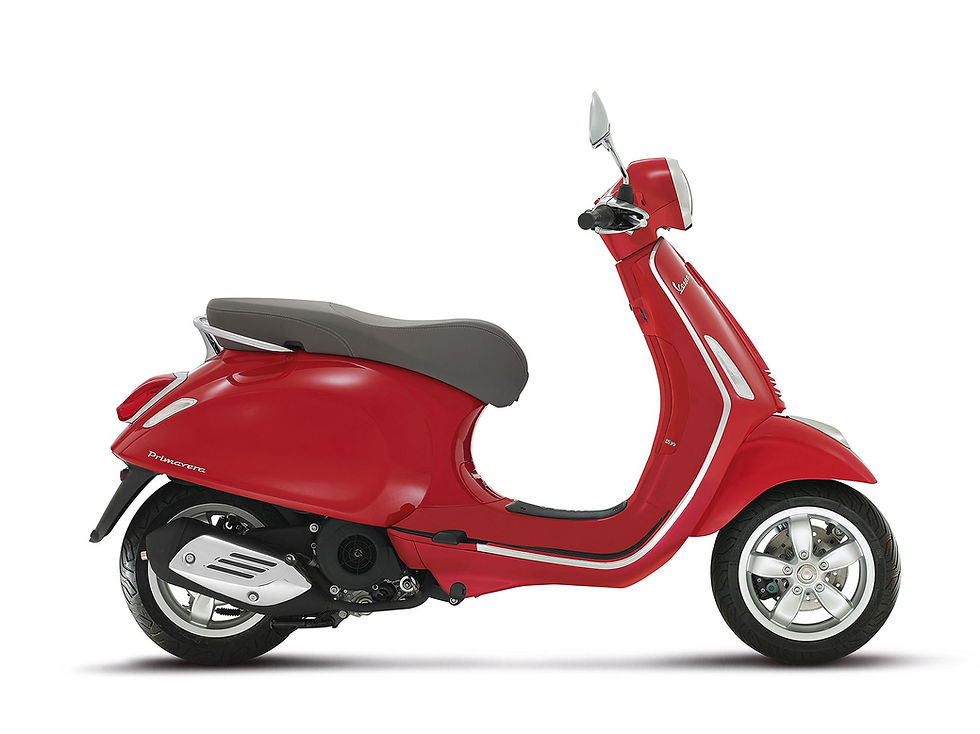
Going Green with Gasoline?
As urban populations expand and environmental awareness grows, riders are turning to low-impact gas scooters as a sustainable alternative for city commuting. These fuel-efficient scooters, designed to minimize gasoline consumption and emissions, offer a practical way to reduce one’s carbon footprint while navigating urban landscapes. This article focuses exclusively on gas-powered scooters, exploring their role in fostering a green lifestyle, highlighting five eco-friendly models, and examining their benefits, challenges, and future in sustainable transportation.
About Eco-Friendly Gas Scooters
Low-impact gas scooters are gaining popularity as urban dwellers seek to address the transportation sector’s significant contribution to global emissions, which accounts for nearly a quarter of the total. These scooters, often achieving over 100 miles per gallon, use less fuel than cars or motorcycles, making them a compelling option for short commutes. Social media posts highlight their affordability and reduced environmental impact, with riders noting savings of thousands annually compared to traditional vehicles. This aligns with goals like the U.S. pledge to cut emissions by 50-52% by 2030, positioning gas scooters as a bridge to greener urban mobility.
(Translate this video with subtitles by clicking the Settings gear icon.)
Top Eco-Friendly and Low-Impact Gas Scooter Models
Several gas-powered scooters stand out for their fuel efficiency, low emissions, and sustainable design. Below are five examples of eco-friendly gas scooters that support a greener future:
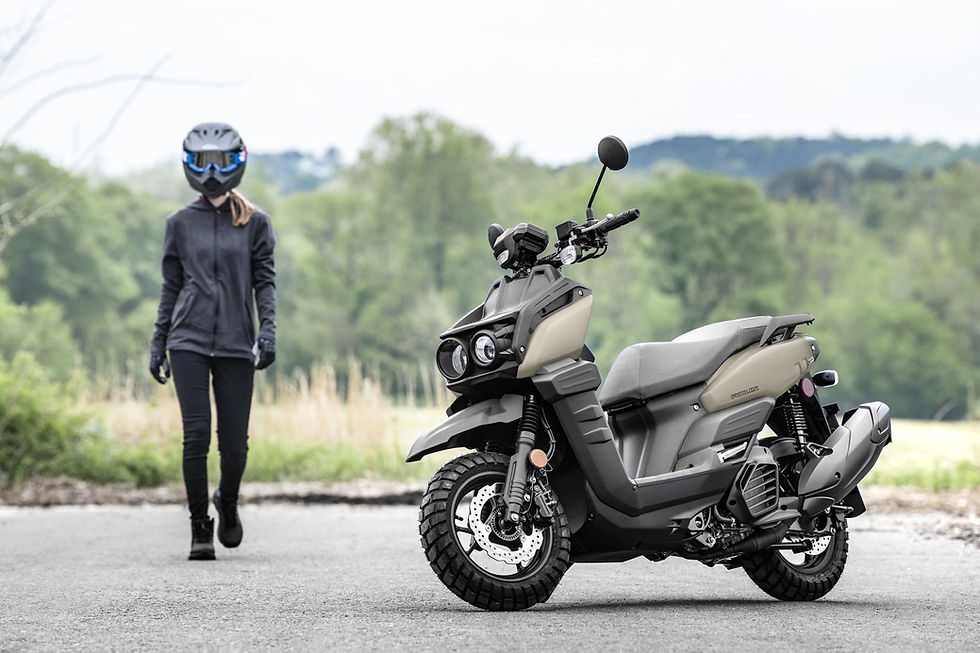
Yamaha Zuma 125
Powered by a 125cc four-stroke engine, the Zuma 125 achieves up to 110 miles per gallon, making it highly fuel-efficient. Its compact design and low-emission engine reduce environmental impact, while durable construction ensures a lifespan of several years with proper maintenance. Ideal for urban commuting, it offers a balance of performance and sustainability.

Vespa Primavera 150
The Primavera 150 features a 150cc i-get engine with advanced fuel injection, delivering over 100 miles per gallon and lower emissions than traditional gas scooters. Its steel frame is built for longevity, reducing the need for frequent replacements. This model combines iconic style with eco-conscious engineering for sustainable city travel.
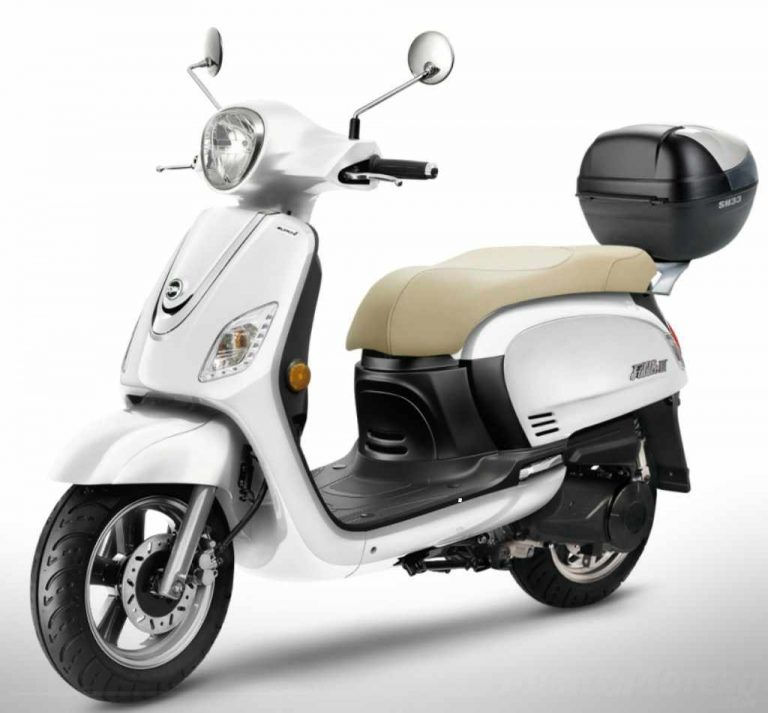
SYM Fiddle III 125
This budget-friendly scooter boasts a 125cc engine that achieves around 105 miles per gallon. Its lightweight design and efficient combustion system minimize fuel use and emissions, making it a practical choice for eco-conscious riders. The Fiddle III’s durability and low maintenance needs further enhance its environmental credentials.
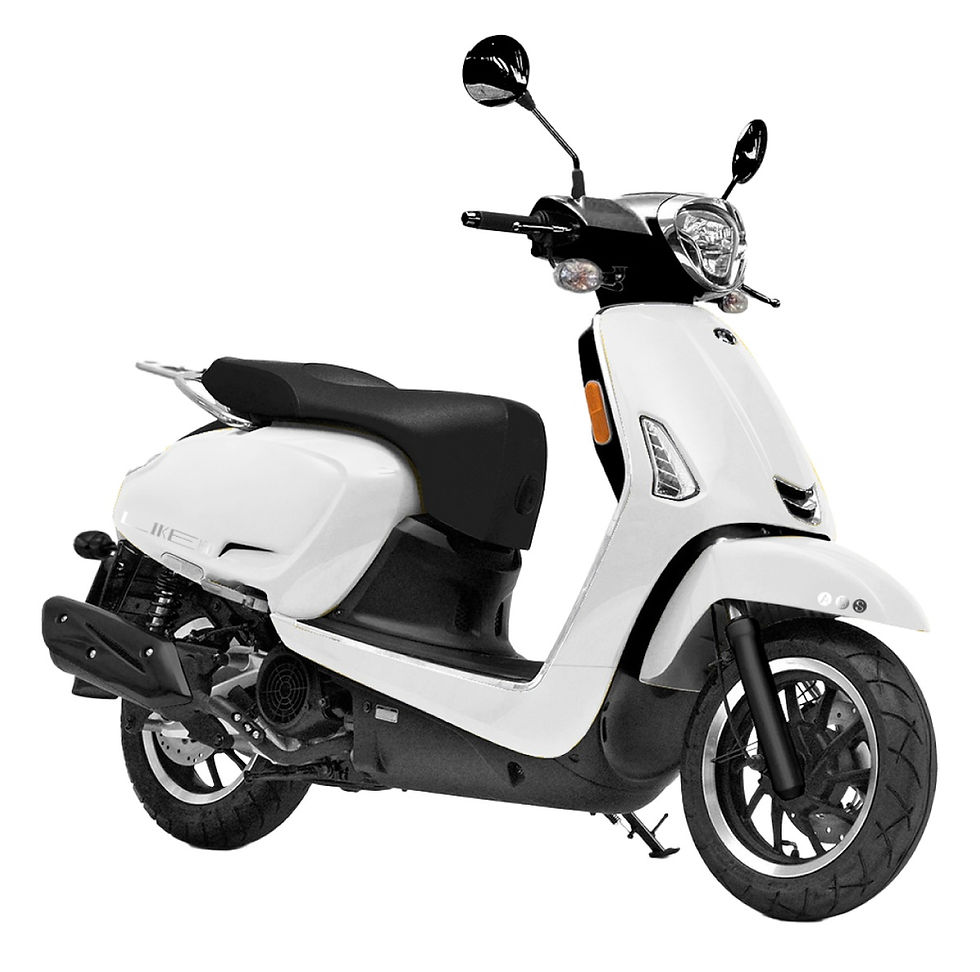
Kymco Like 150i
With a 150cc engine and fuel efficiency exceeding 100 miles per gallon, the Like 150i is designed for urban riders seeking style and sustainability. Its advanced fuel injection system reduces emissions, and its sturdy build supports long-term use, lowering lifecycle environmental impact.
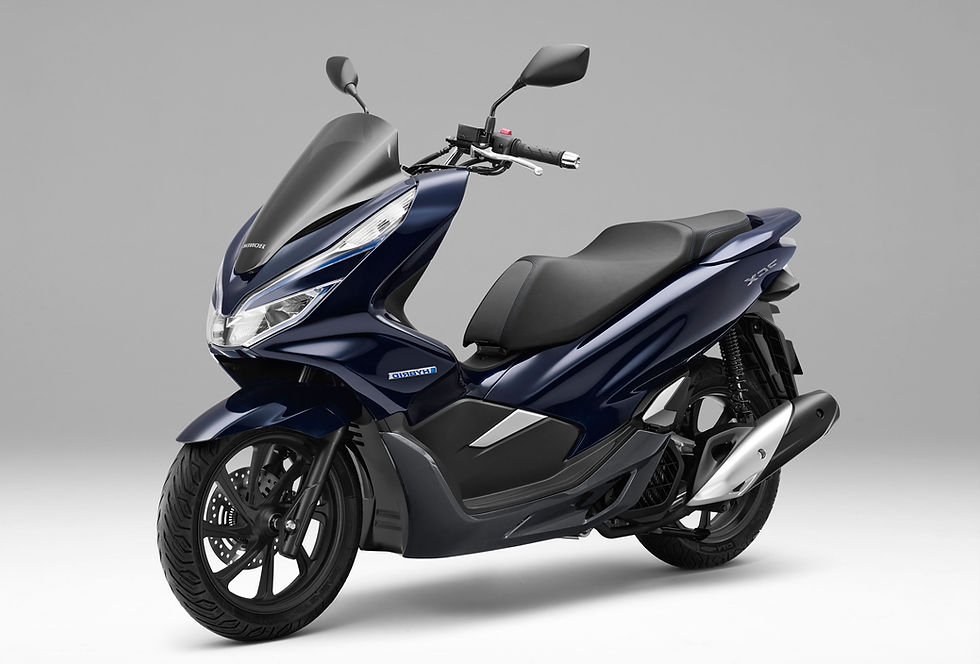
Honda PCX150
The PCX150’s 149cc engine delivers up to 115 miles per gallon, among the highest in its class. Equipped with Honda’s Enhanced Smart Power technology, it optimizes fuel efficiency and reduces emissions. Its recyclable components and robust design make it a standout for eco-friendly gas scootering.
These models showcase how gas scooters can combine high fuel efficiency with reduced emissions, supporting sustainable urban mobility.
Environmental Benefits of Low-Impact Gas Scooters
Low-impact gas scooters offer significant environmental advantages over cars, which emit around 411 grams of CO2 per mile compared to scooters’ estimated 50-100 grams per mile, depending on efficiency. Their fuel efficiency—often exceeding 100 miles per gallon—reduces fossil fuel consumption, making them a lower-carbon option for short trips, which constitute most U.S. car journeys (under three miles).
Scooters also alleviate urban congestion, reducing idling-related emissions. Their compact size requires less parking space, freeing up urban areas for green spaces or pedestrian zones. Unlike heavier vehicles, scooters cause less road wear, decreasing the need for energy-intensive repairs. Additionally, their simpler mechanical structures use fewer resources during manufacturing compared to cars, contributing to resource efficiency.
Challenges in Sustainable Gas Scootering
Despite their benefits, low-impact gas scooters face environmental challenges. Manufacturing, particularly for steel frames and engines, generates emissions, with production estimated at 100-150 kg of CO2 per scooter—less than cars but still notable. Gas scooters produce tailpipe emissions, including carbon monoxide and hydrocarbons, which contribute to smog, though in lower quantities than cars due to reduced exhaust.
User behavior impacts sustainability. If scooters replace walking or cycling rather than car trips, their environmental benefits diminish. Surveys suggest only about one-third of scooter trips displace car journeys, highlighting the need for targeted use. Maintenance is also critical; poorly maintained scooters burn fuel less efficiently, increasing emissions. Finally, end-of-life disposal, particularly for non-recyclable components, poses challenges if not managed responsibly.
Innovations in Eco-Friendly Gas Scooters
Manufacturers are addressing these challenges through innovation. Advanced fuel injection systems, as seen in the Vespa Primavera 150 and Kymco Like 150i, optimize combustion to reduce emissions and improve efficiency. Some brands are exploring biofuels or hybrid technologies to further lower carbon output. Lightweight materials, like high-strength alloys, reduce manufacturing emissions and improve fuel economy.
The emergence of gasoline-electric hybrid scooters is further enhancing sustainability. These scooters combine a fuel-efficient gas engine with an electric motor, reducing gasoline consumption by up to 30% compared to traditional gas scooters. For example, models like the Piaggio 1 Active Hybrid integrate a small electric motor to assist during acceleration, cutting emissions while maintaining range for longer trips. This technology appeals to riders in areas with limited charging infrastructure, offering a bridge between fully electric and gas-powered options. Hybrids also reduce idling emissions in stop-and-go traffic, making them ideal for urban environments.
Durable designs extend scooter lifespans, with models like the Honda PCX150 built to last over five years with proper care, lowering lifecycle emissions. Recycling programs for components like tires and frames are emerging, reducing waste. Additionally, manufacturers are adopting stricter emissions standards, aligning with regulations like Euro 5, which mandate lower pollutant outputs, making gas scooters cleaner over time.
Riders’ Role in Green Scootering
Riders are key to maximizing the eco-friendly potential of gas scooters. By replacing car trips with scooter commutes, individuals can cut annual emissions by hundreds of kilograms of CO2 per weekly trip. Regular maintenance, such as timely oil changes and air filter replacements, ensures optimal fuel efficiency and lower emissions. Social media communities share tips on eco-conscious riding, like planning efficient routes to minimize fuel use, integrating scootering into a broader sustainable lifestyle.
Advocating for urban infrastructure, such as dedicated scooter lanes, enhances safety and encourages adoption. Riders can also support brands prioritizing recyclable materials and low-emission technologies, driving demand for greener models. These actions amplify the environmental impact of choosing a low-impact gas scooter.
Urban Policies Supporting Gas Scooters
Cities are recognizing gas scooters as part of sustainable transport systems. Low-emission zones and restrictions on high-pollution vehicles encourage their use, while some regions offer tax incentives for fuel-efficient scooters. Urban planners are integrating scooters into multimodal networks, linking them with public transit to reduce car dependency.
For example, apps like Google Maps now include scooter-friendly routes, increasing visibility.
Challenges include safety concerns and pavement clutter from shared scooters, prompting cities like Paris to enforce stricter regulations. To address this, municipalities are issuing permits to operators prioritizing underserved areas and enforcing maintenance standards. Infrastructure improvements, such as secure parking and fuel-efficient refueling stations, are critical to sustaining scooter adoption.
The Future of Low-Impact Gas Scooters
The future of eco-conscious gas scootering is promising, with manufacturers developing cleaner engines and expanding hybrid technologies to reduce emissions further. Advances in lightweight materials and recyclable components will lower production impacts. Urban infrastructure will evolve, with dedicated lanes and parking zones making scooters safer and more accessible.
Low-impact gas scooters offer a practical path to greener cities, balancing affordability and sustainability. As one X post noted, “Fuel-efficient scooters are a smart way to cut costs and emissions.” By choosing models like the Yamaha Zuma 125 or Honda PCX150, riders contribute to cleaner air and smarter urban mobility. With ongoing innovation and rider commitment, gas scooters will remain a vital part of sustainable transportation.
Remember: Ride safe. Ride far. Be Considerate. And have Fun!
+++
Look Here for Updates from
Altus Scooter & Motorcycle Parts™
Since 1997, Altus Scooter & Motorcycle Parts™ has been the driving force behind cutting-edge fuel delivery systems for scooters, motorcycles, jet skis, and small boat outboard engines. Our products include a full line of high-quality replacement fuel pump assemblies, plain fuel pumps, ECUs and fuel filters.
Return regularly to Altus Scooter & Motorcycle Parts™ for more updates!
Altus offers international product shipping for all products.
Altus also offers full replacement service for scooter and motorcycle console display LCDs - available only at Altus’s Taiwan Taichung 豐原區 factory. LCD replacement service takes only about 15 minutes.
About Altus:
Since 1997, Altus Scooter & Motorcycle Parts™ has been the driving force behind cutting-edge fuel delivery systems for scooters, motorcycles, jet skis, and small boat outboard engines.Our products include a full line of high-quality replacement fuel pump assemblies, plain fuel pumps, ECUS and fuel filters.

• Trusted by professionals for over 25 years •
• Components that are precision-engineered for optimal performance •
• Seamless integration with leading vehicle brands •























Comments